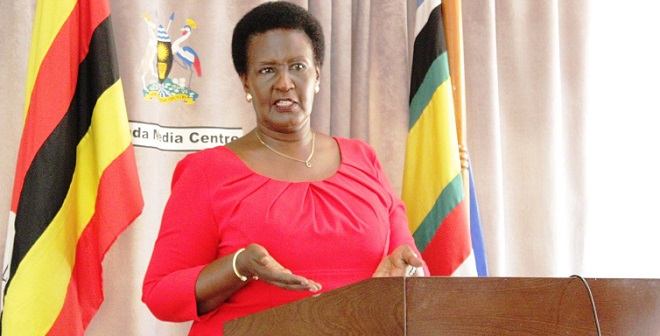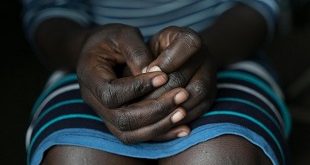
Kampala, Uganda | GODFREY SSALI | Uganda has objected to the introduction of new issues in the World Trade Organization negotiations before the completion of the negotiations on issues in the Doha Round of negotiations.
Speaking during the meeting for the African Group in the ongoing 11th WTO Ministerial conference in Buenos Aires, Argentina, Trade Minister and Head of Uganda’s delegation Amelia Kyambadde said Uganda does not agree to the introduction of new and onerous rules and the launch of an agenda to negotiate new issues in the WTO before concluding the Doha Round.
“The e-commerce market is highly concentrated with only 6 countries controlling 85% of Cross Boarder E-Commerce, which is estimated at 1.6Trn USD. Therefore, the suggestion of rulemaking would advantage those who have fast mover advantage and prevent the rest of us from even catching up”, exclaimed Kyambadde.
The Doha Round is focused on negotiations on agriculture, Non-Agricultural market access, Trade in Services, Preferential Rules of Origin and Trade Related Aspects of Intellectual Property Rights among others. Although negotiations on these issues have not been concluded, developed countries in the WTO are pushing for the introduction of new topics of negotiation beyond the Doha negotiating mandate.
These new issues include Investment Facilitation, Micro, Small and Medium sized Enterprises (MSMEs), and electronic commerce (E-commerce).
One of the contentious issues that developed countries want to introduce in WTO negotiations is regulation of electronic commerce or e-commerce. However, most African countries including Uganda have objected to this saying they are not ready to subject e-commerce to multilateral rules because they are not at the same level in e commerce development with the developed countries. In Uganda, there are no regulations governing e-commerce.
E-commerce refers to the buying and selling of goods and services, or the transmitting of funds or data, over an electronic network, primarily the internet.
Minister Kyambadde says there is need to discuss, within the relevant bodies; ways within which to address the digital divide; share experiences on how to develop digital industrial policies; bridge the knowledge and technological divide that currently exists and put in place the requisite institutional and policy frameworks to build our own e-commerce readiness; and most importantly protect our digital rights.
Kyambadde added that any policies that are intended to narrow Africa’s policy space such as the domestic regulations disciplines will not be acceptable. Any necessary disciplines must preserve Africa’s policy space and right to regulate. Should not intrude into our domestic policy making processes; avoid regulatory capture and control; and not hinder the regulatory capacity and policy space for our development-driven regulations.
She called for unity among African countries and speak with one voice if African countries are to get outcomes of specific interest to them. She said divisions among African counties will only work in the favor of the developed countries and disadvantage African continental integration.
“Multilateral rules and rulemaking have to work for Africa, and at a minimum not undermine our developmental and continental agenda. Further, we need an inclusive, transparent and predictable process at this Ministerial Conference”, explained Kyambadde.
Speaking to the African Group, the Director General of the WTO Roberto Azevedo urged them to work together to make progress and reiterated his commitment to help them achieve their interests.
Happening now: ministers get together to take stock of #MC11’s first day of consultations and statements. pic.twitter.com/NwzYUEIhoE
— WTO (@wto) December 11, 2017
Opening ceremony
Meanwhile, four Heads of Governments in South America signed a presidential declaration pledging support for the WTO and its guardianship of the multilateral trading system. This was during the official opening of the 11th WTO Ministerial Conference in Buenos Aires, Argentina on Sunday 10th December 2017.
The four including President Mauricio Macri of Argentina, President Michel Temer of Brazil, President Horacio Cartes of Paraguay and President Tabaré Vázquez of Uruguay, reaffirmed the importance of the multilateral trading system as the best way to take advantage of the opportunities and to face the challenges of international trade.
They underlined the importance of preserving and strengthening the multilateral trading system, including its dispute settlement system, in order to promote rules based, open, transparent, inclusive, non-discriminatory and equitable trade embodied in the WTO, providing it with the tools it needs to face the challenges of the 21st century.
In his opening remarks, Argentina’s President Macri said that although trade has been a key source of growth and development, the benefits haven’t been shared by everybody, and that has given rise to challenges and a questioning of economic globalization.
“It is our joint responsibility to rise to the challenges of the 21st century and ensure that they become opportunities for a more inclusive future,” he continued. “As the host country, we want to set the basis for the discussion on how to make the multilateral trading system more efficient, to help it become an engine for development.”
 The Independent Uganda: You get the Truth we Pay the Price
The Independent Uganda: You get the Truth we Pay the Price



